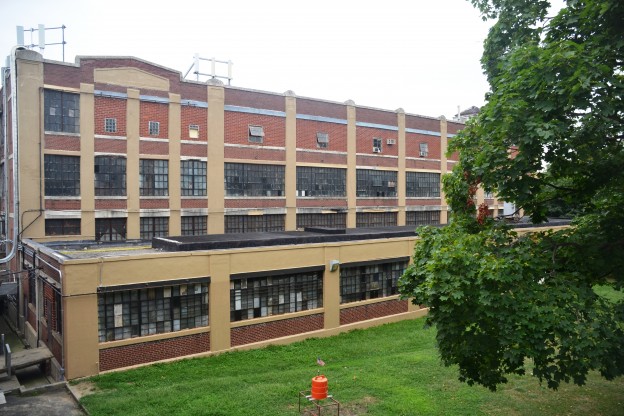The Cooper Rapid Rehousing Center has been a hot spot for crime in the Glendale area since it opened in 2020, with a staggering 808 911 calls and 71 arrests made. QNS received exclusive data regarding the operations at the shelter after Councilman Robert Holden demanded answers from the mayor’s office on its effectiveness.
There are currently 183 homeless men residing at the Cooper Rapid Rehousing Center at 78-16 Cooper Ave., none of which are from Community Board 5, Holden said. Most of the residents came from other boroughs.
Councilman Robert Holden has been a staunch opponent of the shelter since it was just an idea. Earlier this year, Holden called on the city to investigate the shelter, claiming it was not upholding its contractual obligations to provide basic benefits like employment services and life skills programming.
“[Department of Homeless Services], the city, the Bill de Blasio administration has broken almost every promise,” Holden said. “They said this would be an employment shelter, and it’s not. It puts a lot of stress on the limited resources of the 104th Precinct.”
Holden has been battling to get data revealing the operations of the shelter, and finally after contacting Mayor Eric Adams himself, was able to get a look into the shelter’s efficiency.
Of the 183 men living at the Cooper shelter, 52% of them are employed, according to data from the mayor’s office.
According to the city, they estimate about 64% of the unemployed men are able to work. The average stay for a resident is 314 days.
Since 2020, 71 arrests were made, mainly for assault. Most of the over 800 911 calls made were for an ambulance or a call for help.
Holden said that the data he received from the city was upsetting, especially since he was told the homeless in Community Board 5 would get priority housing in the Glendale shelter.
“I believe in smaller shelters,” Holden said. “You can’t expect the neighborhood to accept a large, congregate shelter of 200 men not from the district — that’s not going to work. The amount of 911 calls and arrests — our precinct, it’s a small precinct, can’t take that. Our neighborhood that has a lot of schools around, women and children being harassed. We shouldn’t take that.”
Holden said that he will continue to work towards opening smaller, faith-based shelters that will fit better into the neighborhood.
“Faith-based shelters would have worked for us and our neighborhood,” Holden said. “The warehouse shelter industry is not needed in Glendale or Community Board 5. I look forward to working with Mayor Adams to reduce homelessness throughout the city.”
In 2020, a lawsuit led by Glendale residents attempted to stop the construction of the homeless shelter, claiming the city did not conduct a proper environmental review. However, the endeavor was unsuccessful. A Manhattan Supreme Court Justice found that the residents misinterpreted the environmental review process and denied the lawsuit altogether.
The Department of Homeless Services determined that the building would not have a significant environmental impact. Residents still fought the structure, claiming the building violated zoning requirements. The shelter was still opened in 2020 despite strong community opposition.
DHS commented in regards to the Cooper Avenue shelter, saying everyone has a right to housing but did not address the high crime rates surrounding the facility.
“The fact is New Yorkers experiencing homelessness come from every community across the five boroughs, which is why we need every community to come together to address this crisis,” said the statement provided by DHS. “That includes New Yorkers from this area and the borough who fall on hard times, who deserve access to the types of services and supports that can help stabilize their lives with dignity. As part of our borough-based and equitable-siting approach, we remain committed to ensuring that communities have the critical safety net resources they need to support their neighbors in need.”



































